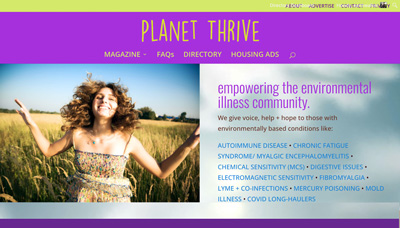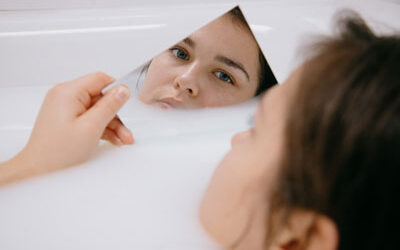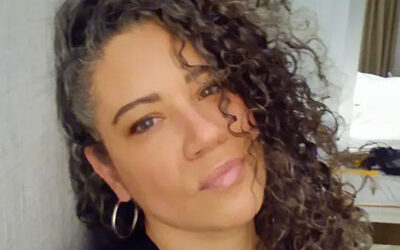
As a person who has lived through the throes of very severe Environmental Illness — I was what they call a “Universal Reactor” for years, sensitive to chemicals, mold, electromagnetic fields (EMFs), the sun, sound, vibrations, food, fabrics, peoples’ energy, pretty much everything in my environment — I have a special resonance with the show Survivor. The show is highly popular and appeals to people of all ages. A group of people are sent to live on a tropical island for around 39 days. During that time, they have limited access to food, water, loved ones, technology, and the comforts of modern living. They spend their time tending camp (building shelter, making fire, foraging/fishing/hunting for food), getting to know each other, doing “challenges,” going on “rewards,” looking for “idols” and “advantages,”strategizing, scheming against each other, and essentially starving. The goal is to outwit, outplay, and outlast the other game participants. The winner gets a check for one million dollars.
The similarities with Environmental Illness are fairly straightforward — the constant deprivation of getting one’s basic needs met. Feeling exhausted, woozy, physically and emotionally fragile, losing weight, being hungry, feeling dizzy, not being able to sleep in a comfortable bed, not having many clothes to wear, feeling freezing, sweating, being unable to perform optimally, having one’s body betray oneself, being unable to eat comfort foods, being separated from your loved ones and all support systems, the list goes on.
The part I love the most are the reward challenges — when the participants who win the challenge get to go on a day trip, and a feast is usually involved. This is what Environmental Illness survivors never get — the chance of an afternoon off from illness, when you can eat to your heart’s desire. A day to swim under a waterfall or spend the afternoon on a yacht. A barbecue with family members. A break from the constant deprivation of illness that allows you to replenish your reserves, and refuel your body and mind. We don’t get that. Rather than feel angry or revert to a victim mentality, as some with Environmental Illness might justifiably feel watching this show, I tend to live vicariously through the Survivor show — I identify with the deprived, weak participants and I get to feel the thrill of a potential reward. If only, if only, one day, I could get a “reward” and de-stress my mind and body from the constant burdens of severe chronic illness.
It’s also always exciting to watch the social drama unfold. In my quiet, relatively inactive life where I have been required to put all of my focus and energy on recovery for years on end, I have very minimal social interactions. Watching Survivor participants develop relationships and choose between loyalty and deceit in order to avoid being “voted off” is entertaining. Then at the end, the winner — the one who survives a little over a month on a tropical island and withstands extremes in weather, social backstabbing, and physical starvation — gets to take home a million bucks. Wouldn’t it be amazing if chronic illness survivors — those who have lived through years of more extreme deprivation and challenge and managed not to be bitter, or were able to regain some semblance of a happy, productive life, or those who continue to battle extreme dysfunction and keep putting one foot in front of the other in spite of all the obstacles — were to be awarded with a million dollars! I think most of us would be thrilled with a cool $100,000.
But in the game of life, we don’t get financial reward for surviving illness. What we get is the reward of showing up for ourselves over and over again. The opportunity to forge our character in the fire. The chance to learn and grow and evolve in ways that wouldn’t be available to us if life flowed more easily. I find comparing the experience of Environmental Illness and the show Survivor so compelling. There are many overlaps, and yet, they are two completely different experiences. One is a game show, and the other is real life. One is provided for our entertainment, the purpose to make money for the producers and one of the participants. The other is provided by a higher power (if you are a believer), the purpose — possibly — to help us grow and evolve spiritually. What a brutal mental blow that was, the day I realized life was not given to us so we could be happy and pain-free, but rather, is a series of experiences that provide opportunity to feel a wide range of emotions, may sometimes challenge us to our core, allow us to fail, but ultimately help us to grow into better human beings. I would choose that game over Survivor, any day.
I will continue to watch and enjoy the T.V. show Survivor. Just as I will continue to wake up each morning and make the choice to recommit to my own recovery and survival. I will use all my resources to recover my body and mind from the microscopic entities (mold, bacteria, viruses, chemicals) that attempted to take over my life so many years ago and continue to challenge me. I will reclaim my health over and over again. I will do what it takes to be the victor in my own game of Life.










0 Comments